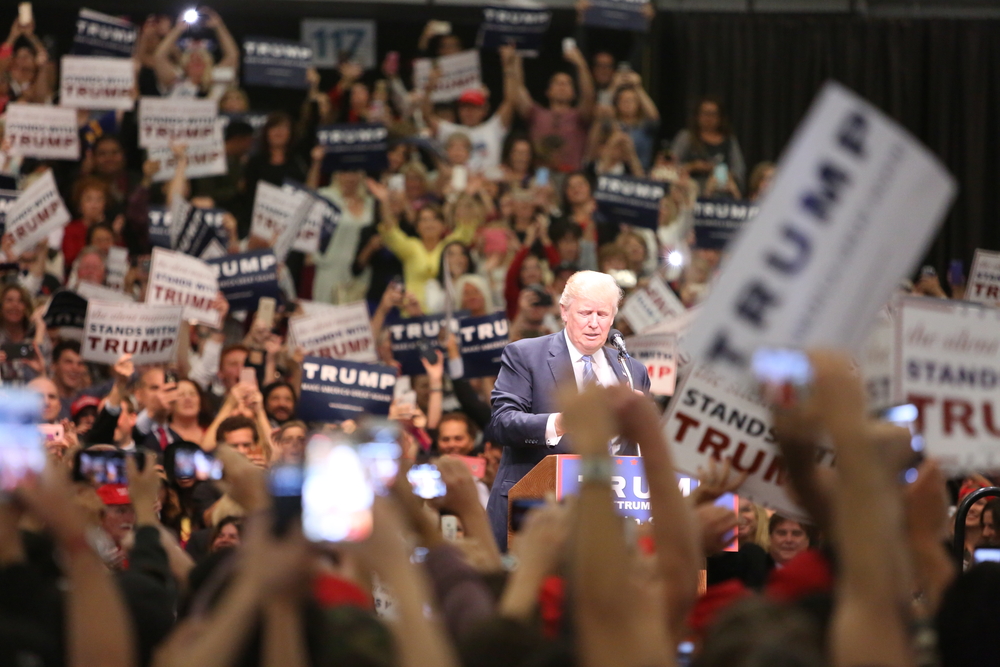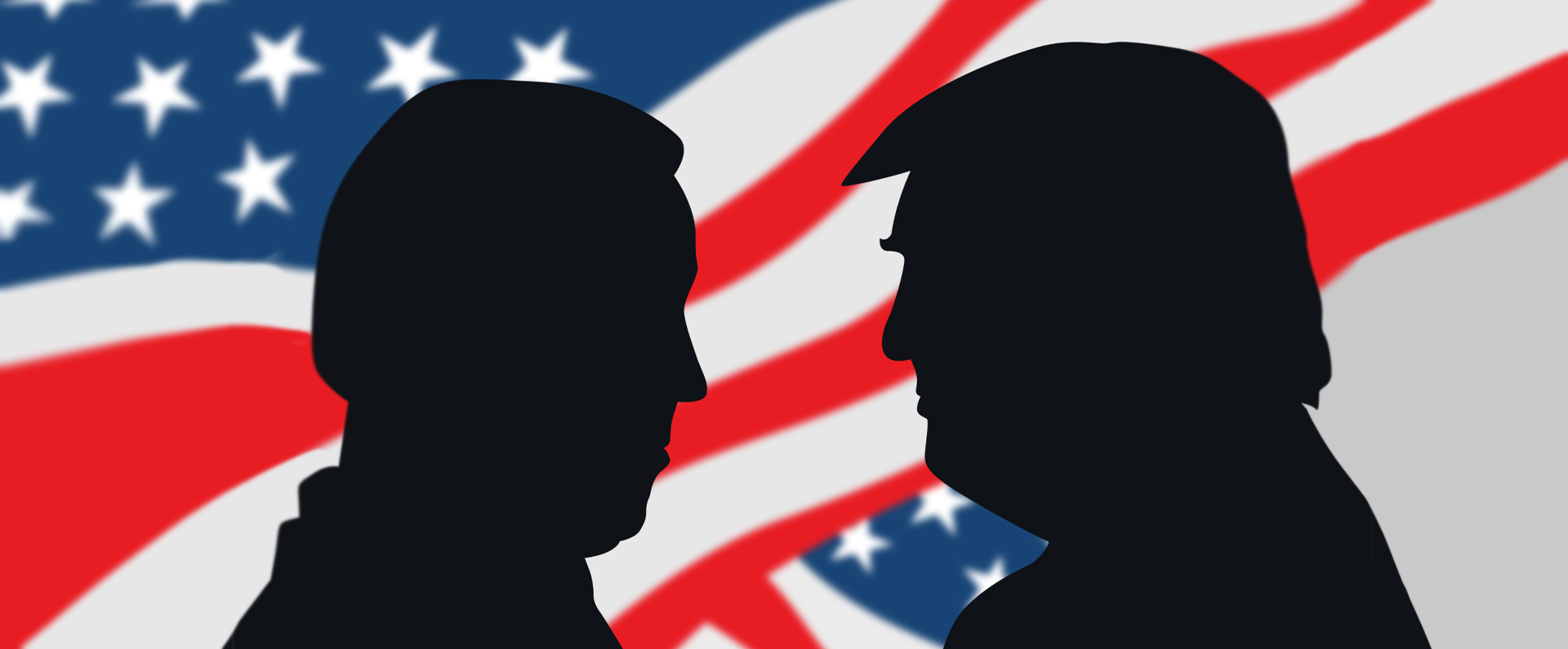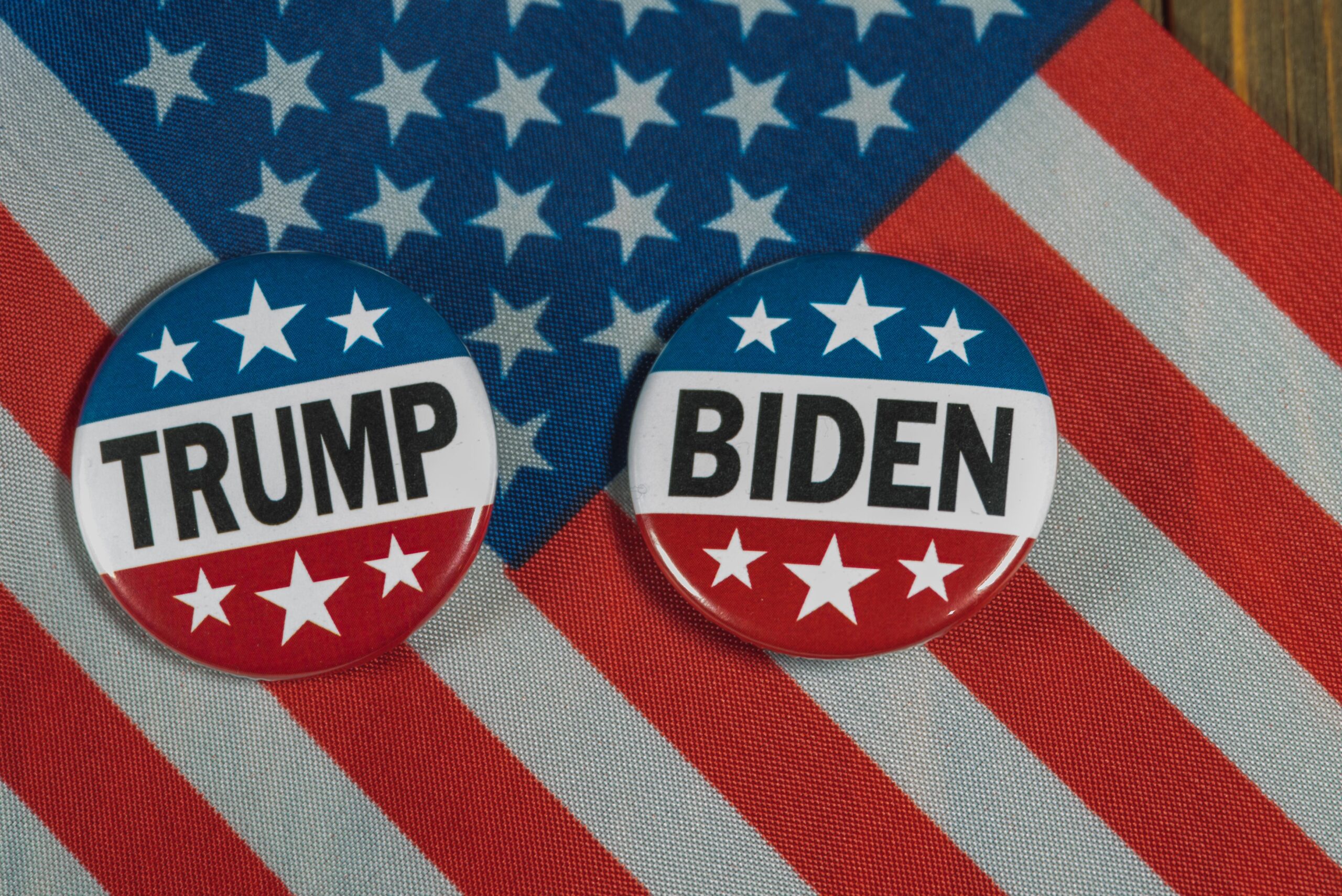
As Hillary Clinton’s campaign manager, Robby Mook has seen the forces at work in American politics more closely than most. I interviewed him last week (you can listen to our full conversation here) at Harvard University’s Kennedy School of Government, where he is working on a project to protect democratic systems from cyber attacks and defend the integrity of elections, an issue that is close to his heart after the experience of 2016. Did he think the Russians had swung things for Donald Trump?
“I don’t think it matters whether it was a deciding factor in the election or not. The fact of the matter is, some people out there got information the Russians deliberately put into the bloodstream that was misleading, and it was done in an effort to help Donald Trump win.” He argues that what happened last year was the equivalent of Russia having a super-PAC (a political action committee that can spend unlimited sums campaigning for or against candidates). “They’re coming in and spending money and delivering messages to try and influence the election. But the ultimate goal of this is to undermine trust and faith in democratic society and the democratic system. That’s what Putin wants.”
In terms of what swung the election, Mook feels the same way about the intervention of FBI Director James Comey, whose announcement late in the campaign that he was re-opening the investigation into Clinton’s emails she has explicitly blamed for turning the result against her. “We can have an academic argument” about whether this was decisive, says Mook, but it must have had some impact and “it shouldn’t ever be open for discussion whether the FBI potentially influenced a presidential election. That alone is unacceptable.”
“In retrospect, I would have played more toward the worst-case scenario”
If there was nothing the campaign could do about the email saga or the Russians, Mook sees two areas where he would have done things differently with hindsight. The first is that he would have been more pessimistic when it came to deploying his money and troops: “In retrospect I would have played more toward the worst-case scenario than even what I thought was the likely-case scenario… We could have put more resources into states like Michigan and Wisconsin. You know, three weeks before election day our margin of victory in Michigan was, if I’m recalling correctly, almost twice what Obama’s was in 2012. That led us to say, OK, we don’t need to put in as many resources there, let’s focus on Florida and North Carolina and other states.”
This in turn has implications for the way campaigns should look at polling, he argues. “I don’t think it’s about where you are at a snapshot in time, I think it’s about what the potential spread is… And in some of these states where voters tend to get their news more from social media, you will see the race as much more fluid, and there’s much more opportunity for someone to disrupt the dynamics of the race.”
“We were assuming that a lot of the rumour and conspiracy that was circulating on social media wasn’t being taken seriously by the vast majority of voters. In retrospect it was being taken way more seriously than we imagined”
This is the second big area in which Mook would make changes given his time again. “I don’t think that, as a campaign, we had the capacity or an apparatus to truly listen to what was happening on social media. And we were also assuming that a lot of the rumour and conspiracy that was circulating on social media wasn’t being taken seriously by the vast majority of voters. In retrospect it was being taken way more seriously than we imagined.”
For Mook, the concept of fake news is not a new phenomenon. “Rumour and innuendo and lies have been part of politics and social life for time eternal. I was at a conference last night and someone reminded us that the Spanish-American War was fought over the sinking of the USS Maine, and that was basically fake news, that the Spanish had sunk that ship, and we started a war over it.” He feels that social media platforms should have more responsibility to disclaim what was being posted, but that users were already becoming wiser about what they saw: “I think people even today look at the information they’re getting over their news feeds differently than they did last year. People recognise, realise, that there are foreign countries and intelligence operatives trying to influence what they think. So I think, over time, people will take these things with a grain of salt – the way, when someone calls you up on the phone today and starts making a sales pitch, they’re telling you something that sounds too good to be true, you’re probably a bit sceptical, because people, as soon as the telephone started, were abusing that.”
“I think way too many people think there’s no way this guy can win, and he can”
When it comes to the next election, the biggest danger for Democrats would be to take for granted that everybody shares their view of the man who occupies the White House. “We have to acknowledge, every day, that Donald Trump could be re-elected as President. I think way too many people think there’s no way this guy can win, and he can. Now if we’re lucky, we’ll be in a situation where he’s so unpopular that it’s easy for a Democrat to win, but that would be a horrible presumption for us to make.”
At the same time, Trump’s next challenger will have an advantage that was not available to Mook’s candidate. “That advantage is that Donald Trump is in charge and accountable, and that this election can and should be a referendum on whether people are happy with the way things are going under Donald Trump.” There is a good reason why parties find it so hard to hold onto the presidency for a third term, and this worked against the Democrats in 2016. After eight years, “anything that the voters are agitated about, they’re really blaming you for. They’re almost pre-programmed for that fresh start,” making them much more willing to take a chance on Trump. Next time, Democrats “don’t have to defend the status quo, it’s not on us the way it was last time. And we can get out there and talk about the country we want to create, we don’t have to spend as much time defending the country the way it is.”
“We could very easily fall into a situation where Donald Trump’s Twitter account has more influence about what Democrats are talking about every day than Democrats do”
Crucially, though, “we just can’t let the campaign be a reaction to Trump, it needs to be a positive articulation of what we want to get done.” Like the assumption that the President can’t win again, this could be a serious pitfall for his opponents: “I think we could very easily fall into a situation where Donald Trump’s Twitter account has more influence about what Democrats are talking about every day than Democrats do.”
Despite the rancorous, partisan tone of politics in recent years, his work at Harvard on protecting democratic institutions from hacking – especially working with election officials from both parties – has given Mook hope for the future. He is working alongside Matt Rhoades who ran Mitt Romney’s 2012 presidential campaign, which was itself hacked by the Chinese. “What’s been amazing to me is, I was just in this room this morning, you have Republicans that are as conservative as you could ever imagine, you had me, you have liberal Democrats in that room, and we are engaging with each other seamlessly. We were having a very focused, organised conversation, and working together. So I have more confidence than I ever had before not just that we can deal with cyber security and the integrity of our elections in a bipartisan way, I think there’s a lot of other things we could do if we just get the right people in the room and focus less on what we’re saying on cable news and focus more on how we are helping people. And also reminding each other every day that we’re all Americans, that we all love our country, that we believe in democracy and our constitution and a free world. And when we start from that place, boy, we have a lot in common with each other.”


